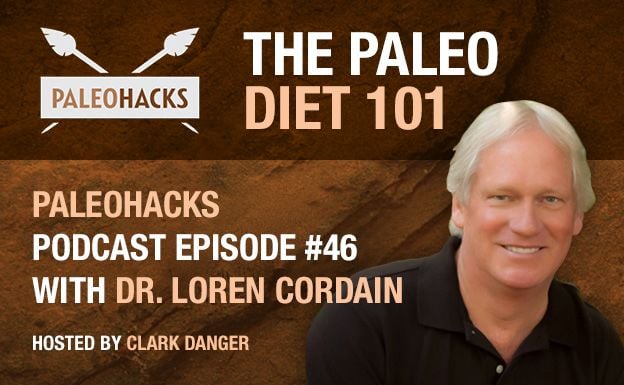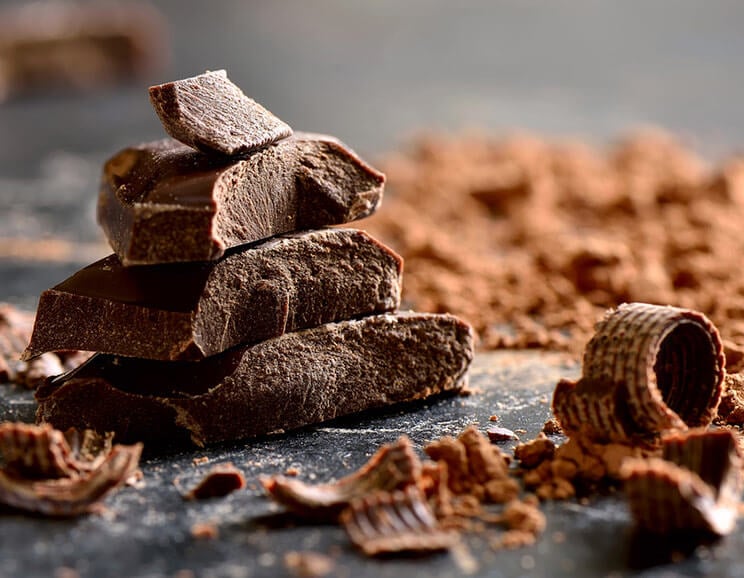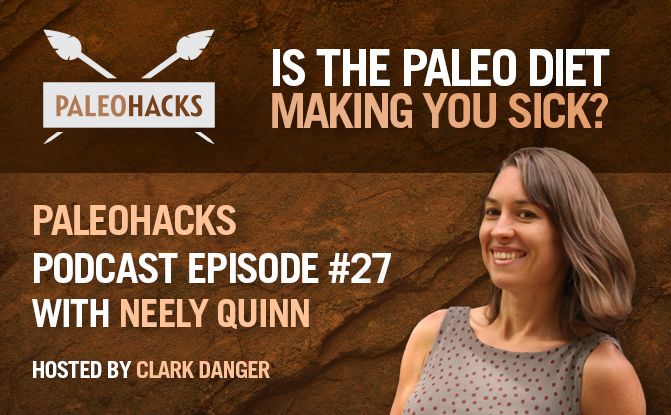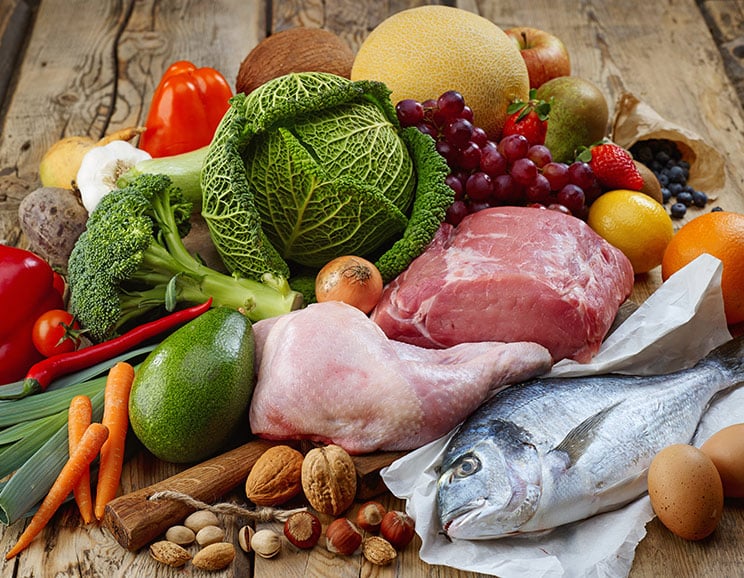When I began my clinical practice, I didn’t have a lot of experience with treating depression. However, as my client population grew I quickly realized just how many people were either suffering from depression currently, or had experienced a significant bout in the past. In fact, the number of people diagnosed with depression increases by 20% every year. What can you do to fend off this debilitating mood disorder?
The causes of low mood and depression are multi-factorial, however the current research has highlighted some interesting areas that may be significantly impacting your mental health. Let’s take a look at how several dietary factors impact depression and how a Paleo approach can help re-balance these areas of deficiency.
Balance Blood Sugars & Insulin
There is a growing connection between high blood sugars, insulin dysfunction and the increased incidence of depression. In Finland, a recent study found that young men with insulin resistance were three times more likely to suffer from severe depression.1
Unfortunately, most people are not tested for insulin or blood sugar dysfunctions when they complain to their doctor about low mood or depression.
Struggling to lose weight? Unable to focus? Chances are, your hormones are out of whack.
Grab Our FREE Guide To Fixing Your Hormones By Clicking Here!
A study in Diabetes Care of over 4,000 people found that anti-depressant medications did not alter the association between depression and insulin.2 Adopting a low-carb Paleo approach, on the other hand, can improve your insulin levels very quickly. If you are overweight or have elevated blood sugars, a high-protein, low-carb healthy diet will likely make you feel better physically and mentally.
Correct Low Vitamin D
The association between low serum Vitamin D concentrations and symptoms of depression has been very well established. Studies show an inverse relationship between vitamin D status and risk of depression.3 If you live in a northern climate with true winters or train frequently you are more susceptible to low vitamin D levels. The Vitamin D Council recommends keeping levels between 100-150nmol/L (greater than 40ng/mL) for optimal health and athletic recovery.
It’s difficult to obtain adequate vitamin D from foods to meet these levels through the winter months, but a Paleo diet will give you the best chance. To keep your vitamin D levels from plummeting, increase your intake with these 5 vitamin D rich foods:
- Cod Liver Oil – 1,400 IU per tbsp. (your grandma knew best!)
- Cold-Water Fatty Fish – trout (645 IU per 3 oz), salmon, or mackerel
- Mushrooms – Portobello (375 IU per mushroom) or Maitake
- Pork – 78 IU per 3 oz. serving
- Eggs – 44IU per egg
Restore Omega 6:Omega 3 Balance
While most people know the benefits of omega-3 fats for cardiovascular health, many don’t know they are also critical for supporting positive mood and reducing the incidence of depression. Researchers believe that both CVD and depression share key physiological mechanisms, such as increased production of pro-inflammatory cytokines, dysfunction of the inner most lining of arteries and veins (endothelium), and increased levels of inflammatory marker homocysteine.4
A Paleo diet is centered on grass-fed and wild game meats, which are naturally high in omega-3 (grass-fed beef has the same amount of healthy omega-3 fats as salmon!) A Paleo diet also naturally reduces omega-6 rich pro-inflammatory vegetable oils by steering you clear of processed foods and snacks. To ensure you have the optimal ratio of omega-6 to omega-3 fats, add more grass-fed and wild game meats, ocean fresh fish, and omega-3 rich nuts like walnuts and macadamia nuts (far and away the nut with the highest amount of omega-3s).
Cool Inflammation
The connection between inflammation and depression has been gathering a lot of momentum in the research community. A recent study found that when animals are given proinflammatory cytokines, they develop significant apathy, appetite loss, diminished desire to socialize, and display greater sensitivity to pain.5 These are all characteristics seen in humans with major depression.
It seems greater levels of systemic inflammation in the body are associated with increased risk of depression.6 But what drives this low-grade inflammation and production of pro-inflammatory cytokines? The root cause is multi-factorial; inflammation can stem from a combination of weight gain, excessive sugar consumption, digestive problems, chronic infections, stress, a sedentary lifestyle, poor sleep, smoking and key nutrient deficiencies (vitamin C, B vitamins, vitamin D, zinc, and omega-3).7
While this is an extensive list of contributing factors, you can start protecting yourself by increasing your intake of antioxidant rich foods. A Paleo diet, rich in vegetables and fruits, helps cool the fires of inflammation. Be sure to include “all colors of the rainbow” on your plate to ensure a robust intake of antioxidants and help extinguish the low-grade inflammatory fires in the body caused by free radical molecules.
Boost Low Testosterone
Testosterone is not just important for your libido and building lean muscle, it’s also critical for bone health, cardiovascular health, and combatting depression. Today’s 24/7 society means most people are indeed “burning the candle at both ends” and the result is lower levels of testosterone. This is classically seen in athletes training at high-intensity but can also result from long hours at the office, lack of sleep, and increased mental stress.
Recently, a study reviewed the medical records of almost 300 men over a two-year period that complained of low libido and had no diagnosis of depression. Over the two-year span, men with low testosterone were four times more likely to be diagnosed with clinical depression.8 This is not just a problem for men. Mood changes, irritability, and depression are also common in women with low testosterone.9
Adopting a Paleo diet can be highly effective for restoring normal testosterone levels. Increase your intake of healthy saturated fats – like butter, coconut oil, and animal fats – to provide your body the building blocks it needs for optimal testosterone. A Paleo diet is also a terrific source of zinc, an essential mineral that acts directly on the testes and ovaries to increase testosterone levels. Grain-based diets contain higher levels of phytates that bind minerals like zinc and reduce absorption. Support testosterone levels by adding zinc-rich foods like oysters, beef, lamb, crab, and dark chocolate. (Check out my last post “4 Dietary Pitfalls That Lower Your Testosterone Levels” for more tips on supporting optimal testosterone levels).
If you suffer from low mood or depression then talk to your doctor about some of these key nutrients that should be evaluated to support the best clinical outcome. Poor blood sugar control, low vitamin D, and insufficient omega-3 intake can all contribute to increased levels of inflammation that are associated with increased risk of depression. Hormonal factors like low testosterone can also play a large role so get your levels tested.
For some, medications can provide the necessary relief to implement these strategies but addressing the root cause is always best practice, so talk to your doctor or naturopath about the right personalized approach for you.
Yours in health,
Dr. Marc Bubbs ND [author_bio name=”yes” avatar=”yes”]
References
1. Timonen. M et al. Insulin resistance and depressive symptoms in young
adult males: Findings from Finnish military conscripts. Psychosom Med 69(8):723-28.
2. Pyykkonen AJ et al. Depressive symptoms, antidepressant medication
use, and insulin resistance: the PPP-Botnia Study. Diabetes Care. 2011 Dec;34(12):2545-7.
3) JU S, Lee Y, Jeong S. Serum 25-hydroxyvitamin D levels and the risk of depression: a systematic review and meta-analysis. J Nutr Health Aging. 2013;17(5):447-55.
4) Severus WE, Littman AB, Stoll AL. Omega-3 fatty acids, homocysteine, and the increased risk of cardiovascular mortality in major depressive disorder. Harv Rev Psychiatry. 2001 Nov-Dec; 9(6):280-93.
5) Song C, Wang H. Cytokines mediated inflammation and decreased neurogenesis in animal models of depression. Prog Neuropsychopharmacol Biol Psychiarty. 2011 Apr 28;35(3):760-8.
6) Rivera-Rivera Y et al. Depression Correlates with Increased Plasma Levels of Inflammatory Cytokines and a Dysregulated Oxidant/Antioxidant Balance in HIV-1-Infected Subjects Undergoing Antiretroviral Therapy. J Clin Cell Immunol 2014 Dec ;5(6).
7) Berk M et al. So depression is an inflammatory disease, but where does the inflammation come from? BMC Med. 2013 Sep12;11:200.
8) Shores MM et al. Increased incidence of diagnosed depressive illness in hypogonadal older men. Arch Gen Psychiatry. 2004 Feb;61(2):162-7.
9) Miller KK, et al. CNS Spectr. Low-dose transdermal testosterone augmentation therapy improves depression severity in women. 2009 Dec;14(12):688-94.



 Red Onion and Chive Eggs with Bacon
Red Onion and Chive Eggs with Bacon







Show Comments